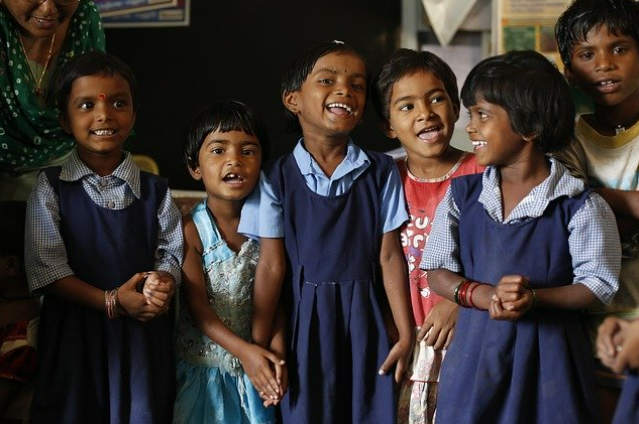
The arrival of Droupadi Murmu on the political scene of India in tandem with her step forward to participate in the Presidential Elections of 2022, has created a wave of an awakening of the tribal population in the country. The best example to support the same was seen lately when the Bhil tribes in Maharashtra took steps to promote tribal education.
The state of tribal education has never been a matter of appreciation in the country. The government schools for the tribal areas do not actually function and have their mention only on paper. Most of the tribal children don't get educated in their mother tongues. The fact that the Bhils were illiterate had to traverse a lot to access the simplest information.
We get to know about Giridhar Nooraparva of Nandurbar district in northern Maharashtra who was the first boy in his tribal community to study. Having completed his studies, he vowed to educate Bhil children. Giridhar also discusses that he made efforts to educate the elderly opinion in his community about the importance of education also telling them that the government shall not proceed in this activity unless we ourselves head forward.
Giridhar was allowed to run a school. He started two schools in a village in August 1993. One was Chimalkhedi and the second was in Nimgawan village. His schools were flooded with scores of children in and around the Bhil community. Although, the schools were only till Grade 4. The name of the school was 'Jeevan Shala' or the 'School of Life' where life's truths are taught.
Trouble began when the Maharashtra Government insisted to shut down the schools. The Government officials threatened the tribals that it was a crime and no one could run such schools. Actually, the Government's behaviour was a natural reaction as the step which it should have been taken was carried forward by the community members themselves. The government actually considered these tribal people as 'savages' and that they could never run the schools on their own. Giridhar also reveals that the government used all tactics to passivate the activity but to no avail. New tribal schools were opened in Gujarat and Maharashtra.
The situation of the present claims that the children are educated not just in regular subjects but also about water, forests, and land. They are also introduced to all the herbs found in the forest as well as edible tubers. They are informed about their uses and consumption.
Giridhar explains, 'The students here are educated under the fallen trees. The teachers take them to rivers and fields to make them understand the importance of water and land.'
The secondary education of the tribal community was also obstructed. The tribals regularly protest the deviant demeanour on the part of government officials. Many of the tribal children have both failed and succeeded in their further academic careers.
It's true that in a democracy the majority has a 'determining voice' in the affairs of the country but that doesn't implicate that the majority will overrule the interests of the disadvantaged.
"Equality is not giving everyone the same treatment no matter what their needs are, but giving an equal opportunity to everyone to achieve what they are capable of." - Anonymous.
. . .
References:
